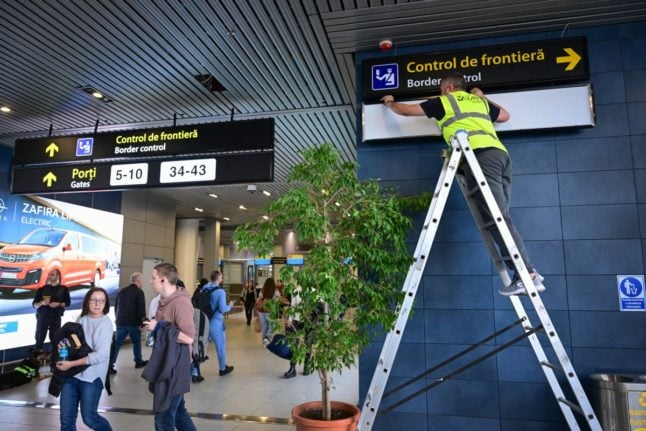While any showdown between the two tech titans has yet to be officially confirmed, Musk said on his X social media platform – formerly known as Twitter – that arrangements were advancing.
“I spoke to the PM of Italy and Minister of Culture,” Musk wrote, referring to Italian Prime Minister Giorgia Meloni. “They have agreed on an epic location.”
Meta chief Zuckerberg responded on his Threads social network, posting a photo of himself shirtless and pinning down an opponent in his “backyard octagon.”
A martial arts enthusiast who has taken part in jiujitsu competitions, Zuckerberg said, “I love this sport and I’ve been ready to fight since the day Elon challenged me.”
“If he ever agrees on an actual date, you’ll hear it from me. Until then, please assume anything he says has not been agreed on.”
Italian Culture Minister Gennaro Sangiuliano confirmed speaking to Musk about “how to organize a great charity event evoking history” but said any match “will not be held in Rome.”
Musk apparently hopes the fight would take place in the ancient Colosseum, a UNESCO World Heritage site, posting about the idea in late June.
READ ALSO: ‘Selfies and ignorance’: Italy’s Colosseum director slams badly-behaved tourists
In a statement, Sangiuliano said any event with Musk would raise “a huge sum, many millions of euros, (that) will be donated to two important Italian pediatric hospitals.”
“It will also be an opportunity to promote our history and our archaeological, artistic and cultural heritage on a global scale,” he said.
Musk meanwhile said “everything done will pay respect to the past and present of Italy” and that proceeds will “go to veterans.”
He said the cage match would be managed by foundations run by himself and Zuckerberg and not by UFC, the Las Vegas-based mixed martial arts promoter.
UFC boss Dana White, still seeking participation in the event, told Mike Tyson’s podcast this week that he believed the fight would generate $1 billion in revenue.
Zuckerberg said in his Threads post that he would want to work with a professional organisation such as the UFC to create a line-up that spotlights elite athletes in the sport.
Social media platforms are awash with mock-ups of the fight in anticipation, depicting the tech giants in the proposed location of the Colosseum.
The fight between Elon Musk & Mark Zuckerberg will take place in Italy & will be livestreamed on both 𝕏 & Meta. 🛡️⚔️🇮🇹 pic.twitter.com/UWExcDXz6D
— DogeDesigner (@cb_doge) August 11, 2023
The two tech tycoons, who have occasionally jousted from afar, became direct competitors after Zuckerberg’s Meta launched its Twitter-like Threads platform in early July.
In a slightly frivolous aside, Musk later Friday posted a phrase in Latin that translates as “it is delightful to play the fool occasionally.”
Musk did not mention a date for the proposed fight, but said he may need to undergo “minor surgery” to resolve a “problem with my right shoulder blade rubbing against my ribs.”
“Recovery will only take a few months,” he added.
The world’s richest person has a titanium plate holding two vertebrae together but said Friday it is currently “not an issue.”



 Please whitelist us to continue reading.
Please whitelist us to continue reading.
I heard it has been cancelled.